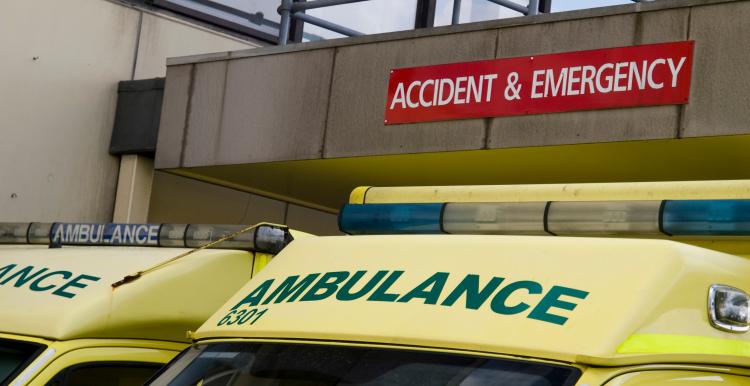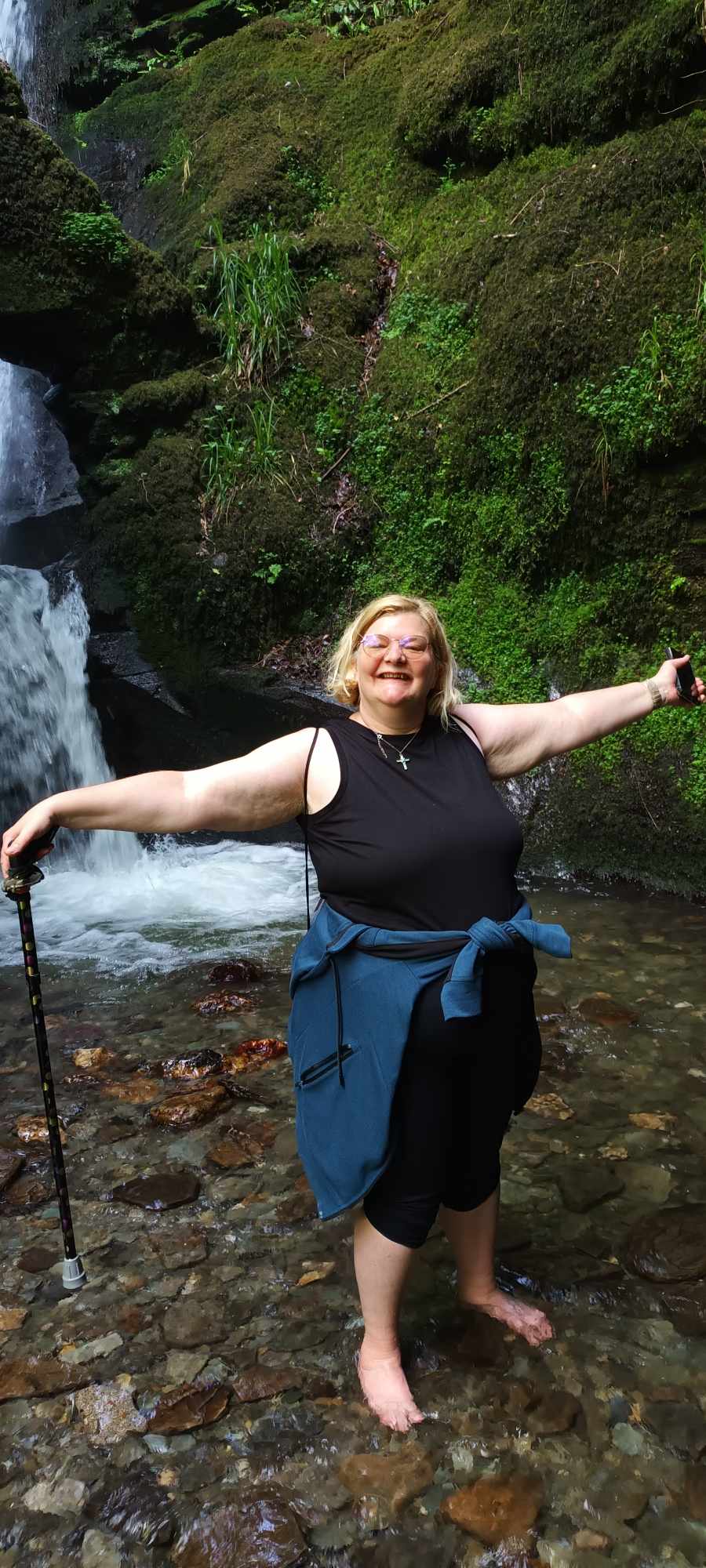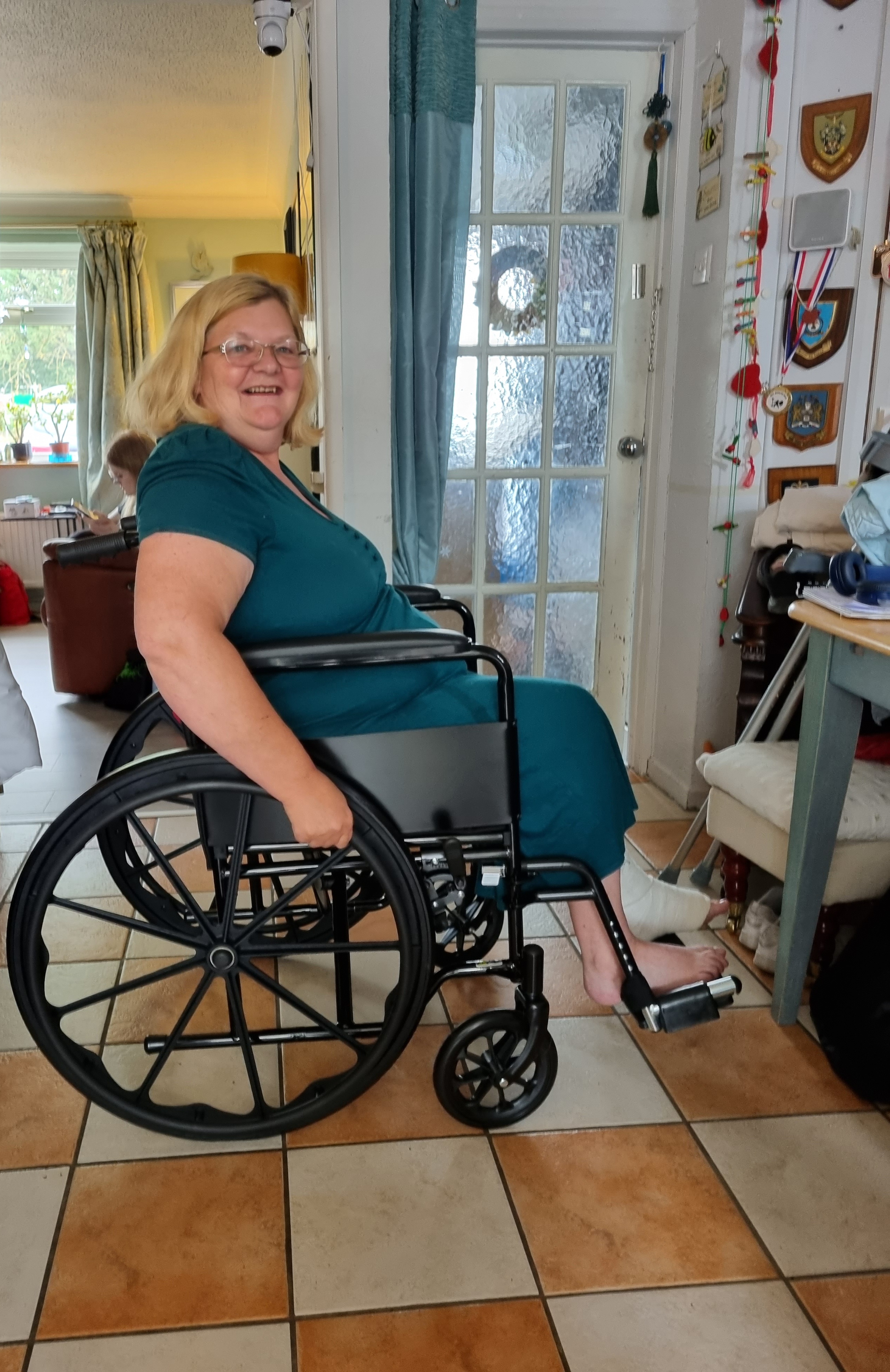Injured walker recalls dramatic rescue during 999 phone blackout

This was the very unfortunate situation faced by Paula Knott in the summer of 2023.
The unexpected incident occurred while she was walking her dog in the early morning to avoid the worst of the heat. Without warning, Paula fell into a ditch, unable to figure out what had happened. The head of the extraction team, who later assisted her, discovered a foot-sized divot hidden under the grass, likely causing her ankle to break as she tumbled over three times. Her dog, remarkably, stopped her fall by acting as an anchor at the end of its lead.
Paula found herself hanging above a large concrete sewerage pipe, stopping just two feet short of it. As she tried to pull herself up, the dry brambles cut her hands and crumbled away, making it impossible to climb out. Thankfully, she had her phone in her bag and managed to call her husband, using What3Words and Google Maps to send her location. A passerby walking his dog heard Paula call for help, but he couldn't see her immediately due to her position. Eventually, she directed him to her location, but he was unable to get her out.
With the gentleman calming her dog, Paula waited for her husband to arrive. Emergency services were unreachable due to the system failure which was affecting all providers, and Paula, a powerlifter, used her walking stick to inch her way up the ditch, despite severe cuts from the brambles. Her husband helped pull her up the last two feet, using the dog's lead as support. Paula's injuries were severe; her foot was effectively detached, held only by soft tissue. She avoided hitting the concrete pipe, which could have worsened her injuries.
Once out, Paula collapsed and couldn't put any weight on her foot. Attempts to call emergency services continued to fail, prompting the locals to get creative. They tried contacting surgeries and the fire station, only to find both unstaffed. A massive 999 system failure was eventually reported on the news, explaining the lack of emergency response.

The village community rallied around Paula, providing umbrellas, water, a sheet and suncream for protection as they waited for help. Her frustration grew as hours passed without assistance. an ambulance arrived but was redirected to another incident. The Ambulance Special Extraction Team finally arrived at around 11am, having initially struggled to locate her.
“When it did arrive, the extraction team was excellent, helping me laugh through the ordeal.” Paula explained.
In the hospital, Paula faced challenges due to her high resistance to anaesthesia, leading to her undergoing surgery awake with a spinal block. The surgical team kept her informed throughout the procedure, again managing to make her laugh despite the circumstances.
Post-surgery, Paula faced difficulties with daily activities, such as getting into her house, up the stairs and using the shower.
“My friend phoned a local charity shop that sells disability equipment, and my daughters collected a transfer wheelchair and other useful items. Prior to the surgery, I saw my regular physiotherapist who helped me to order a lightweight self-propelled wheelchair from Ebay which was a game changer.”

This newfound mobility allowed Paula some independence, vital for her well-being. Paula's regular physio also provided her with exercises and additional support, highlighting the importance of access to the right information at the right time.
Paula was disappointed with the additional physiotherapy services to which she was referred, finding them underwhelming compared to her expectations. She suggested that a more extended, detailed programme like the one she had previously experienced at Doddington Hospital would be beneficial and felt this prior training helped a lot with her recovery. This previous programme allowed for individualised care and continuous support, which significantly improved her quality of life. Being part of the Invictus Games Sports Recovery programme for Wounded, Injured and Sick military personnel also helped Paula deal with the mental recovery and ongoing physical hurdles.
Paula's experience highlighted the importance of community support, access to appropriate information, and continuous care for recovery. Her resilience and determination, combined with the assistance from her local community and healthcare professionals, played a crucial role in her recovery process.


